Beth Tabler's Blog, page 202
February 7, 2022
Bridget, She Wrote
Feb 2, 2022
96 kg (quarantine pregnancy entering 23rd month, tempted to round down to 90 as people will read), Twitter followers 5,176, likes under pinned tweet 79 (v.g.) (wait, no, it’s 39, not 79, blame algorithm), still don’t understand TikTok, watch step count 389 (corpse-like but it’s early), book sales 0 (career over)
11:08am. Today’s plans: work out, clean bathroom, write the BJ piece, become social media influencer (join TikTok).
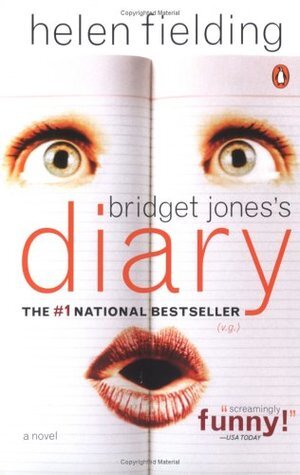 I first read Helen Fielding’s Bridget Jones’s Diary in the summer of 1997. I was walking down a street when I got to the last page – I wasn’t going to take a break from THIS BOOK just because I could get hit by a truck. I immediately flipped the book over and started again. Found self in woman who lived in London, was ten years older, and didn’t believe in grammar.
I first read Helen Fielding’s Bridget Jones’s Diary in the summer of 1997. I was walking down a street when I got to the last page – I wasn’t going to take a break from THIS BOOK just because I could get hit by a truck. I immediately flipped the book over and started again. Found self in woman who lived in London, was ten years older, and didn’t believe in grammar.
Gorgeous Janeane Garofalo played the “ugly girl” in Truth about Cats and Dogs. My closest friend Agata looked like a mouldy potato (her words!) when compared to Ugly Garofalo. I compared myself to the only gay role models I could find in Poland in the 90s – models in porn magazines. I felt that putting a paper bag on my head greatly improved my appearance, at least above the neck. The rest was unsalvageable. We were single and unable to find someone, anyone really, who would want to date us. Which made us failures – too fat, unattractive, saying, wearing, and doing wrong things. We hate-watched While You Were Sleeping and wished we could be like Sandra Bullock and Peter Gallagher and Bill Pullman. You know. Average.
Bridget wasn’t aspirational or movie-star beautiful. In fact, we didn’t know what she looked like at all. We knew she kept obsessing about her weight, but we didn’t even know how tall she was. She could have looked like…anyone. She was everywoman – and quite-a-few-gays. She was Agata and she was me. She was also Candice Carty-Williams, the author of Queenie, who shared in an interview with Connie Roff:
“Black women are not represented in film, TV, books, like where do you find yourself? I never found myself. So I kept going back to Bridget as this person who could also mess up… Bridget Jones’s Diary is definitely the first place that I understood that women didn’t have to be perfect. And that’s really important, and I think that now more than ever we are able to talk about that.”
11:50am. Watch: “it’s time to stand up for a minute.” Bought watch to be encouraged, not sit-shamed. Feel watch v. judgemental.
It was thanks to Bridget Jones’s Diary that the idea of a Proud Singleton appeared in public consciousness, or at least ours. Perhaps we weren’t failures just because we had no boyfriends. We were, in fact, leading glamorous Singleton lives as we glugged cheap Chardonnay while hate-watching Julia Roberts and Meg Ryan. We were still failures, but for many other reasons, and we could laugh about it.
At any family gathering Smug Marrieds, such as my uncles, would inevitably say something like “durrr!!! when are you finally going to find a girlfriend?” (My coming out immediately ended their interest in my love life. That’s a topic for a very different article, though.) I’d sit there feeling like, well, Bridget at Una Alconbury’s turkey buffet. Sometimes it was hard to be a Proud Singleton and not just lonely. As Bridget knew all too well.
We tried. She tried. We failed. She failed. And that made it all okay.
12:27pm. Ugh. Hate editing. Hate article. Want to be known author of thought pieces though. Twitter followers 5,176.
Bridget had a dead-end job and a boss who harassed her (“V.much enjoying being sexually harassed by Daniel Cleaver” is not a line that aged well, same as the chain-smoking). Her mother got her a more glamorous – if glamorous meant mortifying – job on TV with an even worse boss. Agata worked as a hotel receptionist and it looked like her career would one day lead her all the way to senior hotel receptionist. I was a part-time assistant to a graphic designer, looking forward to the day when I would become his full-time assistant. On the minus side, neither of us would ever appear on TV, like Bridget. On the plus side, neither of us would ever appear on TV, like Bridget.
I didn’t cook blue soup. After I broke up with my first ever boyfriend, though, I dyed my hair yellow. It was supposed to be blonde, but when you start with raven black it takes industrial strength chemicals and four stylists to get there. Unfortunately, I didn’t know that yet. My (coupled, but not smug) friends thought it would help me get over the break-up. I looked like Big Bird without the beak.
Agata broke a heel in her shoe in a hurry to get to a date she was already late for. (Agata was always late for everything, while I always got everywhere early.) She decided it was a sign from heaven, got in a bus, and went home. This was before mobile phones became a thing, so for all we know the guy might still be waiting there.
Somehow, though, we could live with it.
12:34pm. Would feel v. proud about writing all this in 7 minutes had not copy-pasted from last night’s draft. Might want to re-read since had wee drink last night to encourage creativity.
12:34pm. Remember to quote LitHub about how Bridget, ie. Fielding, invented tweets. Pretend came up with it myself to look smarter. Twitter followers still 5,176.
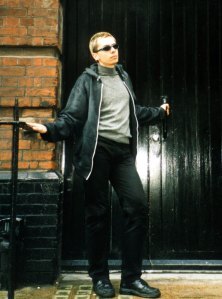 Bridget Jones’s Diary changed the English language. Bridget, who worked in publishing, seemed unaware of grammar. Her clipped voice was weird, distinctive, and it shaped the future. The New York Times review said “O.K., James Joyce it may not be” and (okay, will link) the LitHub article pointed out that Bridget/Fielding essentially invented tweets. This was followed with “I’m going to argue is that Bridget Jones’s Diary is a lot closer to James Joyce than you remember” BUT ALSO “I’m joking, sort of.” Ugh. Is not fair comparison. Nobody actually enjoys reading James Joyce. Even Esther Greenwood in The Bell Jar doesn’t enjoy reading James Joyce and if there’s someone who knows how to find joy in smallest things it’s Esther Greenwood.
Bridget Jones’s Diary changed the English language. Bridget, who worked in publishing, seemed unaware of grammar. Her clipped voice was weird, distinctive, and it shaped the future. The New York Times review said “O.K., James Joyce it may not be” and (okay, will link) the LitHub article pointed out that Bridget/Fielding essentially invented tweets. This was followed with “I’m going to argue is that Bridget Jones’s Diary is a lot closer to James Joyce than you remember” BUT ALSO “I’m joking, sort of.” Ugh. Is not fair comparison. Nobody actually enjoys reading James Joyce. Even Esther Greenwood in The Bell Jar doesn’t enjoy reading James Joyce and if there’s someone who knows how to find joy in smallest things it’s Esther Greenwood.
The plot of the novel is stolen from one of my other favourites, Pride and Prejudice – Helen Fielding bluntly said “I told myself, ‘I don’t think Jane Austen would mind. And anyway, she’s dead.’” Mr Darcy is even named after Mr Darcy and, in the movie, Mr Darcy is played by Colin Firth, who played Mr Darcy in the Pride and Prejudice adaptation Bridget and her friends later watch.
Let me know when you’re done digesting that last sentence.
1:50pm. Fuck. Forgot movie. Wish could forget movie forever tbh.
The film adaptation ruined everything. I developed instant hatred towards Renee Zellweger. It didn’t matter, though, which blonde actress was going to get the role – Bridget would never be everywoman again. We found out that Bridget was 152 cm tall – which was followed by a parade of fat-shaming “jokes.” She (and her perfectly healthy BMI) was, in fact, a failure, and so were we. When at the end Mr Darcy declared he loved her exactly as she was, I nearly asked “why?”
In the book Bridget’s friend Tom points out that human body needs 2000 calories a day to survive. She’s flabbergasted. “Have reached point where believe nutritional ideal is to eat nothing at all and that the only reason people eat is because they are so greedy they cannot stop themselves from breaking out and ruining their diets.” The movie seemed to share this belief. Once more, Bridget, Agata, and I were the (FAT) butt of the joke.
Zellweger received an Oscar nomination because of her heroic weight gain. I watched the movie once, hated it, never acknowledged the sequels’ existence.
(My own body image issues continue twenty years later, thanks for asking.)
5:26pm. Revised thought piece five times. Hate everything about it. Is it wine o’clock yet?
Agata and I lost touch not long afterwards. She moved to another town, then to another country. The last time we exchanged emails – many years ago – she was living in Japan, being busy and important.
I’ve spent most of my late twenties and early thirties going through a series of train-wrecks… I mean – relationships, until I decided I was unfit to be half of a couple. By then, though, I have learned that I was able to live as a Proud Singleton. I no longer needed a man to complete me, I needed a box set of Sex And The City and a few friends with benefits. Four months later – over ten years ago – I met future Husby.
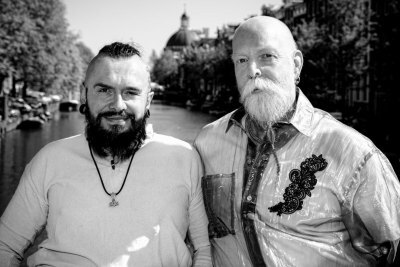
Last month I re-read Bridget Jones’s Diary for the eleventy-billionth time. I have no idea how the sequels aged, because I haven’t felt the need to re-read them for at least a decade – we grew apart, same as Agata and I. Every time I look at the first page of this book, though, I see my young self bathed in late afternoon sunshine, bumping into people as he walks down that street, lost in the book. I see him reach the last page and immediately starting anew; still neurotic, insecure, confused by life, just as single as he was before, but not so lonely anymore. He walks with friends now.
Check Out some of our other Articles5:59pm. Finished thought piece. Worked out. Twitter followers still 5,176, likes under pinned tweet still 39, did not join TikTok (social media influencer career over), watch step count 1,859 (v. close to target 10,000), thought pieces finished 1.
Review – The Final Girl Support Group by Grady Hendrix
Analyzing The Netflix Film Don’t Look Up;
Review – Gunmetal Gods by Zamil Akhtar
The post Bridget, She Wrote appeared first on BEFOREWEGOBLOG.
February 6, 2022
#FEBRUARYSHEWROTE Review – Fortune’s Fool by Angela Boord
“I was an eagle, eater of the dead. Lest the ravens have him, I took him instead.” – Angela Boord, Fortune’s Fool
Angela Boord’s empire is vast in Fortune’s Fool. Her worldbuilding is both as delicate and strong as the silk that she builds it upon. As is Kyrra, a woman that finds herself getting lost and separated from what she believes she holds dear. Kyrra struggles to find her identity in a world built for men by men. She is raised to be one thing, a proper lady, but she is terrible at fulfilling what this world asks of a lady. It’s not long before that part of her identity is stripped away, and Kyrra must figure out how to go on as an imperfect, common woman. In the end, it is Kyrra’s less than ladylike qualities that make her most valuable to her family, to herself, and to the world that Boord has crafted.
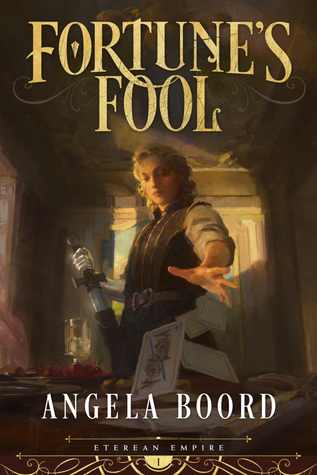 Fortune’s Fool is also a romance in a magical world where magic is woven into drugs and it’s hard to tell if the gods walk among the people. The reader follows Kyrra’s frustrations as she becomes the man she needs and tries to solve the mystery that will lead her to the one she wants. The character voice is strong, and Boord’s words are beautiful and easy to follow.
Fortune’s Fool is also a romance in a magical world where magic is woven into drugs and it’s hard to tell if the gods walk among the people. The reader follows Kyrra’s frustrations as she becomes the man she needs and tries to solve the mystery that will lead her to the one she wants. The character voice is strong, and Boord’s words are beautiful and easy to follow.
Fortune’s Fool is long, but the characters grip you in a way that makes it pass quickly. Come for the struggling female protagonist that finds her strength in making her own way in a cruel world.
Purchase Your Copy Here
Check Out Some of Our Other Reviews
#FEBRUARYSHEWROTE REVIEW – NEGLECTED MERGE BY EVE KOGUCE
Review – Rabbits by Terry Miles
The post #FEBRUARYSHEWROTE Review – Fortune’s Fool by Angela Boord appeared first on BEFOREWEGOBLOG.
February 5, 2022
Review – Mazarin Blues by Al Hess
Mazarin Blues by Al Hess was one of the semi-finalists for the first-ever Self-Published Science Fiction Competition. It’s the first book in the Hep Cats of Boise series, followed by Sable Dark, with Em’s Gator Club, and Gin Cat Jive as side stories.
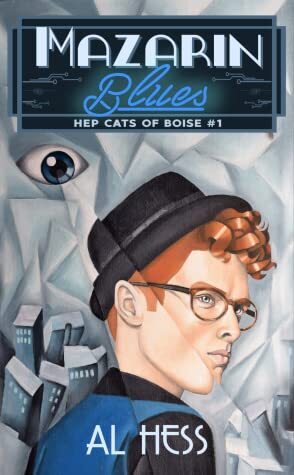 Mazarin Blues is a low-key slice-of-life story about artificial intelligence. Reed Rothwell is an introvert who values privacy and absolutely does not want the artificial intelligence that calls itself Mazarin intruding on him constantly. The A.I is intended to be his navigator, but Reed’s insistence on his privacy means the A.I doesn’t find a lot of use and when they do, it’s against Reed’s wishes.
Mazarin Blues is a low-key slice-of-life story about artificial intelligence. Reed Rothwell is an introvert who values privacy and absolutely does not want the artificial intelligence that calls itself Mazarin intruding on him constantly. The A.I is intended to be his navigator, but Reed’s insistence on his privacy means the A.I doesn’t find a lot of use and when they do, it’s against Reed’s wishes.
The A.I, which names itself Mazarin, is different than other A.Is. Mazarin becomes a bit more independent and a bit more self-aware. The A.Is were programmed by Wave, a shady megacorporation, and many of the other people beta-testing these A.Is have disappeared or killed themselves. From that pitch, it seems like we’re going to get a sci-fi thriller, but the story we get instead is slower, more textured, and very much its own thing.
Mazarin and Reed’s dynamic near the start is best exemplified by this dialogue exchange:
“I don’t want help. I just want to be left alone. Why does no one understand that?”
“It wasn’t. Nothing happened.”
Reed sighed.
“Yes.”
“I don’t like A.I.”
“Touché.” He shut his eyes inhaling the rich caramel and oak notes drifting from the tumbler.
The A.I’s voice came out startlingly thoughtful.
Mazarin is trying to help Reed as best as possible, and it’s help that Reed doesn’t want. The conflict there is one where both involved are absolutely justified and understandable without either needing to be in the wrong.
The series is called Hep Cats of Boise because the characters are all part of a futuristic art deco movement, complete with its own slang. A lot of the story takes place at an art deco bar called the Gator Club run by Em. Rather than the science fiction thriller, we end up getting dual romances, between Reed and a character named Jax, and Em and Mazarin, as the latter starts to use technology to grow beyond its original framework.
The relationship between Jax and Reed has the snag that Reed is still very introverted, and some of their early flirtations feel very one-sided because of that. The Em and Mazarin relationship, with its technological limitations chafing against the energy of a new relationship, had a stronger spark.
The grounded nature of all of this gives a greater heft to the machinations of Wave, so as that plot looms larger and larger near the end, the characterization and setting details mean you care more as they happen.
Overall, I greatly enjoyed this book and look forward to more of Hess’s work.
Purchase Your Copy HereCheck Out Some of Our Other Reviews#FebruarySheWrote Review – Brazen: Rebel Ladies Who Rocked the World by Pénélope Bagieu
#FEBRUARYSHEWROTE REVIEW – NEGLECTED MERGE BY EVE KOGUCE
The post Review – Mazarin Blues by Al Hess appeared first on BEFOREWEGOBLOG.
February 4, 2022
Five Kindle Recommendations – February Edition
Kindle Unlimited is either a feast or a famine when it comes to enjoyable content. For every awesome book among its ranks, there’s about a dozen that…aren’t. However, there’s some diamonds in the rough and I thought I would share a few of my favorites with you.
1 Of Honey and Wildfires by Sarah Chorn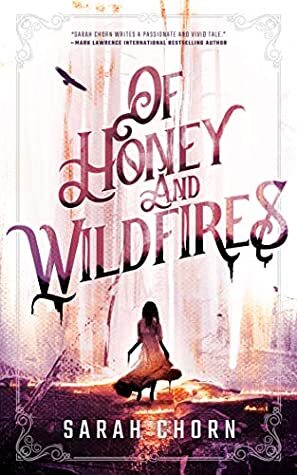
This is an excellent book that manages to be both valuable as literary fiction as well as fantasy. A steampunk novel set in the Frontier where the magical Shine is the most valuable commodity, this story follows the adventures of a young orphan girl as well as a rich heir as they explore the corrupt dealings of the Shine Company. It is very LGBT friendly as well as a book that deals in subjects ranging from economic exploitation to loneliness. I strongly recommend this book and its sequels.
AboutFrom the moment the first settler dug a well and struck a lode of shine, the world changed. Now, everything revolves around that magical oil.
What began as a simple scouting expedition becomes a life-changing ordeal for Arlen Esco. The son of a powerful mogul, Arlen is kidnapped and forced to confront uncomfortable truths his father has kept hidden. In his hands lies a decision that will determine the fate of everyone he loves—and impact the lives of every person in Shine Territory.
The daughter of an infamous saboteur and outlaw, Cassandra has her own dangerous secrets to protect. When the lives of those she loves are threatened, she realizes that she is uniquely placed to change the balance of power in Shine Territory once and for all.
Secrets breed more secrets. Somehow, Arlen and Cassandra must find their own truths in the middle of a garden of lies.
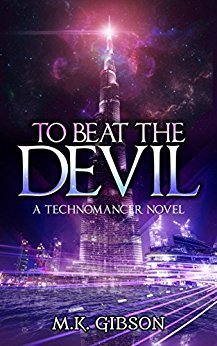
Salem is a man who has survived the Biblical apocalypse along with the rest of humanity. Unfortunately, God didn’t show up and demons have set themselves up as the rulers of the Earth. A cyborg courier, he finds himself caught in the web of infernal politics that has emerged and struggles to find a place for himself as well as the last of the free humans. I really enjoy this snarky fun urban fantasy series and all of its use of mythology. It’s not high art but it’s damn fun.
About175 years have passed since God quit on mankind. Without his blessing, Hell itself, along with the ancient power of The Deep, were unleashed upon the world. Two world wars and oceans of blood later, a balance was reached. Demonkind took its place as the ruling aristocracy. Mankind, thanks to its ability to create, fell to the position of working proletariat. Alive, but not living.
Lucky Us.
Welcome to New Golgotha, the East Coast supercity. In it you will find sins and cyborgs, magic and mystery, vices without virtue and hell without the hope of heaven. In the middle of it all is Salem, smuggler extraordinaire and recluse immortal, who has lived and fought through the last two centuries, but his biggest battle is just beginning.
To Beat The Devil: A technomancer Novel is an incredible adventure full of cyborgs and demons, gods, magic, guns, puns and whiskey, humor and heart. Follow Salem as he embarks to discover the meaning of the very nature of what mankind is: our souls. And, who is trying to steal them.
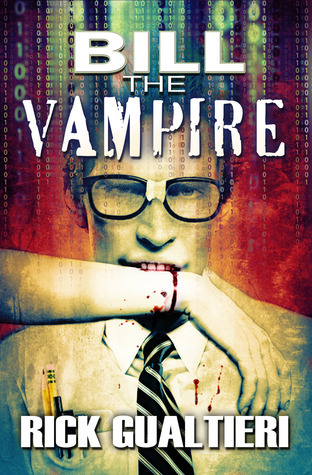
Speaking of humorous urban fantasy, the Bill the Vampire series is a delightfully crash and amusing work from start to finish. Bill is an arrogant jerk of a nerd and being turned into a vampire does nothing to improve his disposition. However, possessing an immunity to vampire mental control, he finds himself heralded as the chosen of the Freewill prophecy. From there he ends up facing Bigfoot (Bigfeet?) armies, Alexander the Great as a vampire, and his own idiot friends.
AboutThere are reasons we fear the night. He isn’t one of them.
Meet Bill Ryder: programmer, gamer geek, and hopeless dweeb when it comes to women. All he ever asked for out of life was to collect his paycheck, hang out with his buds, and eventually (someday) ask out the girl of his dreams.
However, then Bill met Sally. She was mysterious, aggressive, and best of all…smoking hot. Bill never stood a chance. Before he knew what was happening Sally had lead him to his death, and that was only the beginning of his troubles.
Now Bill awakes to find himself an undead predator of the night. The only problem is he’s still at the bottom of the food chain.
He’s in way over his head, surrounded by creatures more dangerous, better looking, and a whole lot cooler than he is. Worst of all is the dreaded Night Razor, a master vampire who just can’t stand him. He gives Bill a 90-day deadline to either prove himself or meet a more permanent kind of death, and the deck is definitely stacked against him.
But Bill isn’t exactly average. A vampire like him hasn’t been seen in over five centuries. He’s got a few tricks up his sleeve, unlikely allies to help him out, and an attitude problem that makes him just too damn obnoxious to quit. He may just pull it off… if he doesn’t get his teeth kicked in first.
Bill the Vampire is an 80,000 word horror comedy adventure by Rick Gualtieri.
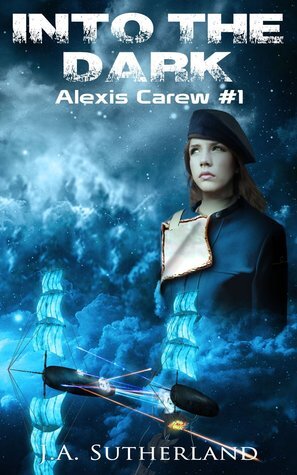
I’m a huge fan of steampunk but rarely have I seen it in space. The Alexis Carew series follows the titular character as she leaves her backwater planet to join Her Majesty’s Navy. Being a midshipwoman is no picnic, especially as it involves a lot of 17th century British Navy tropes as well as a sexist environment that doesn’t much care for young women. Can our plucky heroine win the crew’s respect and save the Empire? Absolutely!
AboutAt fifteen, Alexis Carew has to face an age old problem – she’s a girl, and only a boy can inherit the family’s vast holdings. Her options are few. She must marry and watch a stranger run the lands, or become a penniless tenant and see the lands she so dearly loves sold off. Yet there may be another option, one that involves becoming a midshipman on a shorthanded spaceship with no other women.
5 Orconomics by J. Zachary Pike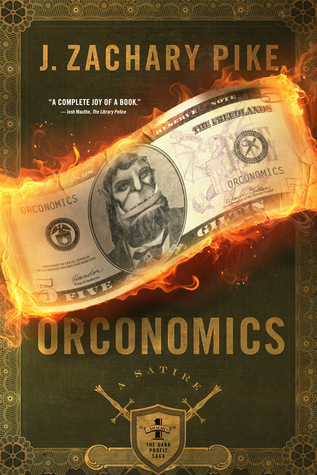
To wrap up this month’s recommendations for Kindle Unlimited, Orconomics is a fantastic book parodying not only Dungeons and Dragons but the entire profit-driven economies of the fantasy genre. Adventurers love going into monster homes, killing the people inside, and stealing their wealth. Well, an entire business has begun around it in this series. However, the number of monsters and their amount of wealth is running out. Some monsters have decided to get jobs to avoid being slaughtered too. What to do!
AboutBrimming with swords, sorcery, and wit, Orconomics: A Satire introduces Arth, a world much like our own but with more magic and fewer vowels. For the licensed wizards and warriors of Arth, slaying and looting the forces of evil is just a job. The Heroes’ Guild has turned adventuring into a career, selling the rights to monsters’ hoards of treasure as investment opportunities. Corporations spend immense sums sponsoring heroes to undertake quests, betting they’ll reap the profits in plunder funds when the loot is divvied up.
Questing was all business for famous Dwarven berserker Gorm Ingerson, until a botched expedition wiped out his party, disgraced his name, and reduced him to a thieving vagabond. Twenty years later, a chance encounter sees Gorm forcibly recruited by a priest of a mad goddess to undertake a quest that has a reputation for getting heroes killed. But there’s more to Gorm’s new job than an insane prophecy; powerful corporations and governments have shown an unusual interest in the job. Gorm might be able to turn a bad deal into a golden opportunity and win back the fame and fortune he lost so long ago.
Promising fun, fantasy, and financial calamity, Orconomics: A Satire is the first book in The Dark Profit Saga, an economically epic trilogy.
REVIEW – Dames for Hire by S.C. Jensen
Short Story Review – Little Free Library by Naomi Kritzer
The post Five Kindle Recommendations – February Edition appeared first on BEFOREWEGOBLOG.
#februarySheWrote – The Love Hypothesis by Ali Hazelwood
 As for contemporary fiction, – shrug – it’s not usually my cup of tea as I prefer at least half a spoon of fantasy in my drinks.But as I said, this was a challenge to myself and one I actually really enjoyed!!For one, I thought this book was freaking hilarious dear reader! In fact, I found myself saying that it had no business being as funny as it was. But here I am happy to divest myself of my usual cold-hearted and jaded guise to say how much I enjoyed reading it.First of all its protagonist, Olive is my age which has been pretty rare for my usual reading. And secondly, I related to her a bunch cause I too, am in the throes of academia, and even though I’m not going for a Ph.D. like she is, I could still very much see my own struggles and tired/broke student humor in her. Olive’s inner monologue is an ongoing source of hilarity and her hyperbolic internal reactions to situations that make us all die of second-hand embarrassment were truly a joy to experience.It really made for a lighthearted read that helped me unwind that day. Yes, I said day cause I read this in one afternoon & evening! You could say I was just charmed into reading it all in one go since the narrative style and writing lent themselves well to a speedy and low-effort read.So how did I get over all of my pet peeves you might wonder. Well, Hazelwood didn’t write any of them in! This is a fake dating trope, which when done well like in here, can be really funny and pleasant. But it can also be iffy, so I appreciated that the main cause of the fake dating scenario was for the benefit of Olive’s friend’s happiness (I don’t want to elaborate to avoid spoiling too much) rather than just to prove she isn’t lonely and *needs* to have a boyfriend in order for her friends to get off her case and for her to be happy; which is a tired clichè IMO and, a misleading bit of the blurb, be warned.Secondly, the narrative of consent throughout is superbly done! Not just in a sexual context either. You know I love pointing it out when it’s there and I am happy to say this novel passed with flying colors! Hazelwood touched on it in more than one regard, as well as bringing forth real concerns in the academic world (be it impropriety, power dynamics, stolen credit, funding issues, bullying, etc.) in a manner that did not romanticize certain behaviors and challenged tendencies/attitudes that we’re better of without.And finally, my two biggest pet peeves are miscommunications and big angry or loud fights to round out the penultimate act of the story. It’s the known tension “needed” to cause the protags to separate for a time etc., and it annoys the heck out of me because it is often very poorly handled and I have a hard time accepting the reconciliation afterwards if things aren’t addressed enough, purely for the sake of “well they’re meant to be together, all is forgiven”.Tensions can be created in many different ways and still maintain a healthy relationship between the characters and, which allows for things to be resolved in a credible and wholesome manner. Which is what Hazelwood did here thus managing to create a relationship that felt pure, wholesome, and genuine, setting a healthy example to follow.To wrap up, this is an adult romance novel and as such there are explicit sex scenes and some silly clichés I was expecting, (e.g. he is huge in all the ways and especially the ones that matter wink wink – something the author never lets us forget, which I could have done without, I’m not gonna lie. Yes, I get it he’s really tall and broad and dreamy, I know), but I don’t really begrudge them because they are staples of the genre and if it really bothered me I shouldn’t have been reviewing it. Furthermore, silliness aside, I did find it all tastefully written and it fit in very well with the rest of the narrative, the protagonist’s voice, and certain plot points relating to Olive’s demisexuality – which hey! Nice bit of rep I thought!So, if you’re looking for a cozy read with a simple plot, that’ll cause you several belly laughs, a good dose of feels, and that ultimately gives you the fuzzies wrapped in a bow of satisfaction, then this is the book for you!!I’m certainly glad I challenged myself to read it!Until next time,Eleni A. E.9/10Purchase Your Copy HereCheck Out Our Other Reviews Here
As for contemporary fiction, – shrug – it’s not usually my cup of tea as I prefer at least half a spoon of fantasy in my drinks.But as I said, this was a challenge to myself and one I actually really enjoyed!!For one, I thought this book was freaking hilarious dear reader! In fact, I found myself saying that it had no business being as funny as it was. But here I am happy to divest myself of my usual cold-hearted and jaded guise to say how much I enjoyed reading it.First of all its protagonist, Olive is my age which has been pretty rare for my usual reading. And secondly, I related to her a bunch cause I too, am in the throes of academia, and even though I’m not going for a Ph.D. like she is, I could still very much see my own struggles and tired/broke student humor in her. Olive’s inner monologue is an ongoing source of hilarity and her hyperbolic internal reactions to situations that make us all die of second-hand embarrassment were truly a joy to experience.It really made for a lighthearted read that helped me unwind that day. Yes, I said day cause I read this in one afternoon & evening! You could say I was just charmed into reading it all in one go since the narrative style and writing lent themselves well to a speedy and low-effort read.So how did I get over all of my pet peeves you might wonder. Well, Hazelwood didn’t write any of them in! This is a fake dating trope, which when done well like in here, can be really funny and pleasant. But it can also be iffy, so I appreciated that the main cause of the fake dating scenario was for the benefit of Olive’s friend’s happiness (I don’t want to elaborate to avoid spoiling too much) rather than just to prove she isn’t lonely and *needs* to have a boyfriend in order for her friends to get off her case and for her to be happy; which is a tired clichè IMO and, a misleading bit of the blurb, be warned.Secondly, the narrative of consent throughout is superbly done! Not just in a sexual context either. You know I love pointing it out when it’s there and I am happy to say this novel passed with flying colors! Hazelwood touched on it in more than one regard, as well as bringing forth real concerns in the academic world (be it impropriety, power dynamics, stolen credit, funding issues, bullying, etc.) in a manner that did not romanticize certain behaviors and challenged tendencies/attitudes that we’re better of without.And finally, my two biggest pet peeves are miscommunications and big angry or loud fights to round out the penultimate act of the story. It’s the known tension “needed” to cause the protags to separate for a time etc., and it annoys the heck out of me because it is often very poorly handled and I have a hard time accepting the reconciliation afterwards if things aren’t addressed enough, purely for the sake of “well they’re meant to be together, all is forgiven”.Tensions can be created in many different ways and still maintain a healthy relationship between the characters and, which allows for things to be resolved in a credible and wholesome manner. Which is what Hazelwood did here thus managing to create a relationship that felt pure, wholesome, and genuine, setting a healthy example to follow.To wrap up, this is an adult romance novel and as such there are explicit sex scenes and some silly clichés I was expecting, (e.g. he is huge in all the ways and especially the ones that matter wink wink – something the author never lets us forget, which I could have done without, I’m not gonna lie. Yes, I get it he’s really tall and broad and dreamy, I know), but I don’t really begrudge them because they are staples of the genre and if it really bothered me I shouldn’t have been reviewing it. Furthermore, silliness aside, I did find it all tastefully written and it fit in very well with the rest of the narrative, the protagonist’s voice, and certain plot points relating to Olive’s demisexuality – which hey! Nice bit of rep I thought!So, if you’re looking for a cozy read with a simple plot, that’ll cause you several belly laughs, a good dose of feels, and that ultimately gives you the fuzzies wrapped in a bow of satisfaction, then this is the book for you!!I’m certainly glad I challenged myself to read it!Until next time,Eleni A. E.9/10Purchase Your Copy HereCheck Out Our Other Reviews Here#FEBRUARYSHEWROTE REVIEW – NEGLECTED MERGE BY EVE KOGUCE
#FebruarySheWrote Review – Lady Hotspur by Tessa Gratton
The post #februarySheWrote – The Love Hypothesis by Ali Hazelwood appeared first on BEFOREWEGOBLOG.
February 3, 2022
#FebruarySheWrote Review – Brazen: Rebel Ladies Who Rocked the World by Pénélope Bagieu
Throughout history and across the globe, one characteristic connects the daring women of Brazen: their indomitable spirit. Against overwhelming adversity, these remarkable women raised their voices and changed history.
With her one-of-a-kind wit and dazzling drawings, celebrated graphic novelist Pénélope Bagieu profiles the lives of these feisty female role models, some world-famous, some little known. From Nellie Bly to Mae Jemison or Josephine Baker to Naziq al-Abid, the stories in this comic biography are sure to inspire the next generation of rebel ladies.
My Thoughts on Brazen: Rebel Ladies Who Rocked the World
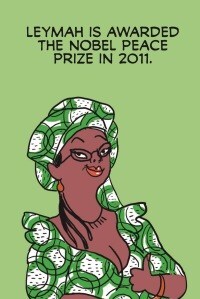
Often when discussing women in history it is the same few women, Joan of Arc, Marie Curie, Jane Austen, or Rosa Parks to name a few. They are great women and have earned their place in the annals of history. However, these great pioneering women tend to cast long shadows often obscuring the quieter successes of the pioneering women who should be recognized.
That is the magic of this Brazen: Rebel Ladies Who Rocked the World.
It celebrates women who should be celebrated but do not necessarily have a national holiday named after them.
Do you want to learn about the first bearded lady or the first gynecologist? Or, Georgina Reid – the woman who set out over twenty years to save a long-abandoned but beautiful lighthouse? You do, you really do.

Georgina Reid was a little old lady who noticed that after finding her and her husband’s dream coastal home, they were losing about a foot of erosion off of the cliff face the home perched on. Pretty soon Georgina’s garden would literally fall by the wayside. With no engineering experience, Georgina started to study Japanese terracing techniques. Working tirelessly, sometimes by herself or sometimes with her husband, she remedied the erosion by building terraces of sand and plant. She stopped the erosion of her property while her neighbors eroded away. Next stop, The Montauk Lighthouse. Built-in 1795, the lighthouse is a longstanding and loved feature of the community that had been recently decommissioned due to erosion. Georgina began to tackle the problem and it took her 17 years. She worked constantly for 17 years. She saved the landmark and this woman is a brazen rebel lady.

We need role models like this for people to celebrate.
Joan of Arc was an amazing woman. She led a revolution. But she is far removed from mine and my daughter’s comprehension. Georgina Reid is someone I can teach my daughter about and who we can relate to. She is one of many brazen women featured in this graphic novel and worth the celebration.
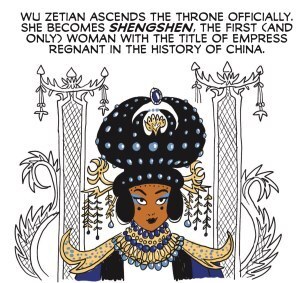
Each of the selected women in Brazen: Rebel Ladies Who Rocked the World has a few pages spread giving background on her life and celebrating some big moments. The vignettes also discuss what happened after they passed away, if applicable, and the legacy they left. The graphics are simple, but effective and lovely. I read a little ofBrazen: Rebel Ladies Who Rocked the World to my daughter, and she loved it. I did as well. It is stories and graphics for all ages.
Highly Recommend.
Purchase A Copy Here
Check Out Some Of Our Other Reviews
Review – Jennifer Government by Max Barry
REVIEW – THE LAST KINGDOM BY BERNARD CORNWELL
The post #FebruarySheWrote Review – Brazen: Rebel Ladies Who Rocked the World by Pénélope Bagieu appeared first on BEFOREWEGOBLOG.
February 2, 2022
#FEBRUARYSHEWROTE REVIEW – NEGLECTED MERGE BY EVE KOGUCE
I had the pleasure of, a few moments ago, completing a wonderful book, “Neglected Merge”, by the marvelous author, Eve Koguce. Now it’s time to put down some comments about my read.
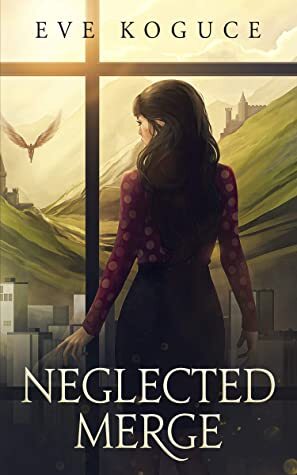 “Neglected Merge” is a fascinating novel, with a thought-provoking and original plot, outstanding characters, and amazing writing. The protagonist, Tauria, lives in a dystopian society, which has undergone a disastrous, apocalyptic event, whereby the society that has emerged is divided essentially into three sections. First, there is an underground, dissatisfied element that lurks in the outskirts of the known world, that the vast majority of the “wingless” human society (the second section) is blissfully unaware of. Third, separated from the wingless are the winged: a human-like race, who enjoy long lifespans, a very austere and orderly existence, and a reluctance to engage with the wingless folk. The wingless are as equally hesitant to engage with the winged, and have created a world for themselves that is almost perfect, in that people are allowed to pursue meaningful work, casual friendships and relationships, and everything in life is designed with leisure and enjoyment in mind. Marriage is typically considered redundant, even outlawed, and while the family unit has become somewhat obsolete, it has seemingly permitted great societal freedoms, and happiness. The pursuit of individual pleasures, without what is considered to be burdensome entanglements, has become the societal norm. This makes for an easy, if somewhat bland, predictable, and potentially unstimulating life.
“Neglected Merge” is a fascinating novel, with a thought-provoking and original plot, outstanding characters, and amazing writing. The protagonist, Tauria, lives in a dystopian society, which has undergone a disastrous, apocalyptic event, whereby the society that has emerged is divided essentially into three sections. First, there is an underground, dissatisfied element that lurks in the outskirts of the known world, that the vast majority of the “wingless” human society (the second section) is blissfully unaware of. Third, separated from the wingless are the winged: a human-like race, who enjoy long lifespans, a very austere and orderly existence, and a reluctance to engage with the wingless folk. The wingless are as equally hesitant to engage with the winged, and have created a world for themselves that is almost perfect, in that people are allowed to pursue meaningful work, casual friendships and relationships, and everything in life is designed with leisure and enjoyment in mind. Marriage is typically considered redundant, even outlawed, and while the family unit has become somewhat obsolete, it has seemingly permitted great societal freedoms, and happiness. The pursuit of individual pleasures, without what is considered to be burdensome entanglements, has become the societal norm. This makes for an easy, if somewhat bland, predictable, and potentially unstimulating life.
Tauria is an inhabitant of the second section. Unsurprising, the ebullient Tauria finds life pleasant, but ultimately unfulfilling, though she cannot initially pinpoint what is the cause of the lack of fulfilment and listlessness she feels. Then, a random meeting brings a member of the winged ones, named Doron, into her orbit, and everything changes.
Romance is central to the book, and it is exceptionally well-executed. There are unexpected liaisons, surprise relationships, and passionate encounters that fans of the genre will adore. On the dystopian fantasy side, along with the excellent world-building, the political intrigue, and negotiations that take place between different elements of society, are extremely compelling. It feels like one has a coveted, bird’s eye view, eavesdropping on high level diplomatic meetings at the modern-day United Nations. Tauria is central to all that occurs, and it is her courage, empathy, ability to connect with others, and passion for life and who she loves, that will make the reader love her in turn. Koguce has made her vivacious main character one full of high intellect, guts, and beauty, that will easily make the reader root for Tauria. Readers will keep anxiously turning the pages to discover if Tauria’s unique abilities are enough to give her, and the world, the kind of life it deserves. Will she be able to help bring together factions that fear and mistrust one another, to forge a better world for everyone concerned? Tauria is surrounded by a very interesting cast of secondary characters, such as the mentor, Alfred, Tauria’s good friend Byrne, and all the winged ones, such as Duxe, Ferrus, Abelia, Tauria’s love interest, Doron, and many more. Koguce has successfully crafted engaging auxiliary players to the main plot of Tauria and Doron’s love affair, that will give the readers other personas to ponder about with respect to motivations, desires, and whose side these players are really on.
I have read very few authors who have been so adeptly able to illuminate the feelings and thoughts of their characters. Koguce has a way of expressing emotions that draw the reader into the character’s head. I have learned Koguce has a background as a poet, so I am not surprised that her prose is so fluid, so captivating, that she has spent time spinning rhythmic lines of shorter length, prior to penning her novel. Koguce’s linguistic style in some passages of the book is similar to poetic diction, and it provides an air of almost mysticism to the book that I found enchanting. It certainly lends itself to both the components of romance, and of the epic side of the book, where worlds hang in the balance of primarily Tauria’s actions. I simply loved Koguce’s writing style, and this is a book I will likely find myself re-reading, just to hear her lovely, distinct writing voice come through the pages once more.
“Neglected Merge” written by Eve Koguce, is a highly engaging dystopian romance-fantasy thriller that I absolutely loved! I can’t wait for the next book by this exciting author, and I will surely be reading the next novel she writes!!!
Purchase the Novel HereCheck Out Some of Our Other Reviews
Review – Gunmetal Gods by Zamil Akhtar
Review of Fissure by Tim Daniel, Adrian F. Wassel, and Patricio Delpeche
The post #FEBRUARYSHEWROTE REVIEW – NEGLECTED MERGE BY EVE KOGUCE appeared first on BEFOREWEGOBLOG.
February 1, 2022
#FebruarySheWrote Review – Lady Hotspur by Tessa Gratton
“But in the Third Kingdom a strong mother-line was respected, and for a decade now Celeda had gathered allies and woven her plans, always knowing she’d never be invited home. Knowing if she was to return, she would have to seize back her legacy.”
Tessa Gratton had my attention as an incredible novelist with the first book I read by her, The Queen of Innis Lear. As a huge Shakespeare enthusiast, a lover of female powerhouses in lead roles, and a devourer of books that are epic in scope, that have nuanced storylines, and of course exquisite prose, Gratton offered everything I desire in a book and more.
The Queen of Innis Lear was a remarkable book that definitively convinced me to read everything that Gratton writes. So there was no question I would be signing up for the follow-up, entitled Lady Hotspur.
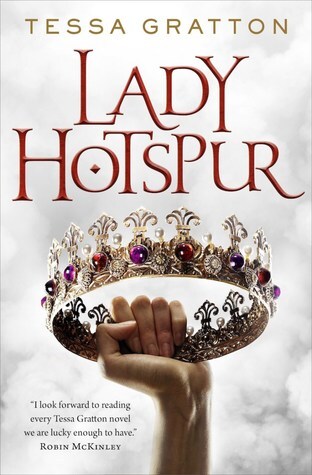 I was very eager to read it, and it was the first book I selected for my #FebruarySheWrote reads, where I will be reading exclusively female authors who use the pronouns she/her. I got started a little early (late January), in my excitement to see what Gratton would do next, and because with such an ample book as the opening read, I needed that head-start to digest it, and still fit all my #FebruarySheWrote books into the month.
I was very eager to read it, and it was the first book I selected for my #FebruarySheWrote reads, where I will be reading exclusively female authors who use the pronouns she/her. I got started a little early (late January), in my excitement to see what Gratton would do next, and because with such an ample book as the opening read, I needed that head-start to digest it, and still fit all my #FebruarySheWrote books into the month.
This novel is no less lengthy than The Queens of Innis Lear, Gratton’s previous Shakespearean fantasy retelling, set in the same universe. Yet, for me, while I thoroughly enjoyed the first book in this duology, Lady Hotspur is even a cut above the marvellous The Queens of Innis Lear. This second novel is around 600 pages of simply glorious prose, an intricate plot, startling magic, love, passion, intrigue and betrayal, and characters so wondrous you will immediately miss them when you turn the last page.
In Lady Hotspur, Gratton is as reverent to Shakespeare’s original work, Henry IV, Part I, as she was to the famous Bard’s King Lear in her The Queens of Innis Lear. Yet she makes everything feel new, fresh, modern, while maintaining the classic feel of a famous literary masterpiece.
As the passage at the start of this review, taken from early in the novel, indicates, the plot centres, just like Shakespeare’s Henry IV, Part I (and part of the preceding play in chronological order, Richard II) around rebellion that causes turmoil and sets dramatic events in motion.
“This is how kings die, she thought, again and again. Betrayed.”
But Gratton swaps most of Shakespeare’s male leads for females, save for King Rovassos of Aremoria, who stands in for the ineffectual and tragic figure King Richard II of England. The powerful Celeda (compared to Henry Bolinbroke, later King Henry IV), Celepia ‘Hal’ Bolingbroke (Prince Hal Bolinbroke who goes onto to become King Henry V), Isarna ‘Hotspur’ Perseria – known as the Wolf of Aremoria (Harry ‘Hotspur’ Percy), her mother Caratica Persy (Henry Percy, Earl of Northumberland), Isarna’s aunt Vindomata, Duke of Mercia (Thomas Percy, Earl of Worcester), Princess Banna Mora, heir of Rovassos (Edmund Mortimer, Earl of March), knight Ianta Oldcastle (Sir John Falstaff) are all women, and partial composites of the male historical figures.
Like in the Shakespeare plays, Rovassos banishes Celeda. But with the help of supporters such as her daughter Hal, Hotspur, Mata Blunt, Caractica, and Vidomata, the ambitious Celeda returns to Aremoria and overthrows Rovassos. Yet Banna Mora, the disinherited heir, does not take losing out on the throne lightly. At one time, she was the Crown Prince of Aremoria, and the new Crown Prince Hal was once her loyal retainer and friend, serving Banna Mora as part of the Lady Knights, the royal personal bodyguard, of which Ianta was also a prominent member.
Hotspur too, was once a dear friend and vassal of Banna Mora, and Hotspur is the most feared warrior in the land. Banna Mora eventually falls into the hands of the royal family of Innis Lear, but marries into that family, and comes in line to rule in that kingdom. But Mora is not satisfied with only Innis Lear, and dreams of uniting both stolen Aremoria and Innis Lear under her rule.
The key to victory is having the generalship, allies, and forces of Hotspur on Mora’s side. Hotspur, meanwhile, has fallen in love with Hal, and Hal with her – a great twist Gratton throws in to completely change the nature of the retelling. Celeda similarly needs Hotspur on her side, and Hal’s relationship with the love of her life will be put to the test, because of all the tension surrounding Mora’s aspiration to rule Aremoria, versus Hal’s new position as heir to Aremoria.
Just as the Bard purported with his portrayal of Hal, Gratton paints Crown Prince Calepia as one who is all about hanging out with her rowdier friends – led by Ianta – carousing, drinking, and avoiding facing her princely responsibilities. The aptly named “Prince of Riot” holds a shadow court of hangers-on, lovers, and those who encourage her to keep cavorting in style.
This contrasts to the austerity, discipline, and suspicion hanging over the real court of Hal’s mother, because, as history shows us, usurpers can never completely rest easy. Hal was easily my favourite character, and her conflicted feelings about ascending the throne, her natural charm and wit, and her desire to keep Mora in the fold, have Hotspur as her consort, and yet stay loyal to her mother’s ideals, make her extremely fascinating.
There are plenty of extremely well drawn and engrossing male characters in the book. Rowan Lear, Connley Errigal, their love affair, and the jealously of the mysterious Ashling ghost towards Rowan was one of my favourite subplots. Charm is an intriguing figure, and the quirky wizard, whose identity was a great reveal, was a blast of a character.
But this book is all about the magnificent women, and they are intelligent, charismatic, fierce, wonderfully conflicted, and kept me glued to every page. Even the more minor female characters, such as Vatta and Nova, stole plenty of scenes. The titular Hotspur is a force of nature, and while as noted Hall was my fav, I truly enjoyed Hotspur’s arc, and wanted to see if, as in Shakespeare, she would finally come to sword-points with Hal, despite the love for one another that Gratton has added in her retelling, to ramp the stakes of such a potential show-down even higher.
The contrast of the elemental, earthy, grounded magic, and casual, rather informal monarchy of Innis Lear with the pragmatism, more stern militaristic culture, and legacy-bound royalty of Aremoria was exceptionally done by Gratton. The esteemed Morimaros, patriarch of the Aremoria royals, looms ever-present as one ideal as a ruler, compared to the legend of the wild and unpredictable wizard who founded Innis Lear.
I loved the call-backs to The Queen of Innis Lear, with the spectre of the three sisters who nearly tore the realms apart – warrior Gaela, schemer Regan, and dreamer Elia – still haunting the new characters about a century later.
Finally, in my praise for the book, we cannot talk about Gratton without specifically talking about her astounding prose. Let’s just admire one of my favourites:
“The sky glowed with stars: bright, silver, white and pink and yellow, pinpricks of illusory colour, a rainbow shattered and tossed into billions of points. There the half-moon, a chunk of magic that hung, only the saints knew how, so near one could count its gray freckles and pockmarked shadows. Hotspur took a deep breath, her body filling up with a sensation she hardly knew how to name: awe, peace, longing. Love, maybe.”
I am voracious for every word that Gratton pens, because she writes in such a lovely, detailed, lyrical style that is more than worthy of the legacy of Shakespeare. But Gratton’s book is no mere copy of the Bard.
In creating a masterpiece of her own, with #OwnVoices, injecting magic, unique characters, and gender inversion based on the writing of the icon that is Shakespeare, Gratton once more weaves her spell around the reader, drawing us into her world of prophecy, divided loyalties, and destiny.
With evocative, edgy prose, engaging drama, and overall a dreamy feel to her books, Gratton has me hooked, and I will surely be coming back for more. Five plus stars for Lady Hotspur!
Purchase a Copy HereCheck Out Some of Our Other ReviewsReview – Blackbird Vol. 1 by Sam Humphries, Jen Bartel
Review – The Free Bastards by Jonathan French
The post #FebruarySheWrote Review – Lady Hotspur by Tessa Gratton appeared first on BEFOREWEGOBLOG.
January 31, 2022
Review – Jennifer Government by Max Barry
JENNIFER GOVERNMENT by Max Barry is a satirical anti-corporate dystopian science fiction novel. One that I put squarely within the cyberpunk category despite its relative lack of rain, neon, AI, or cybernetics. It is entirely driven by its powerful social satire and near-future-driven storytelling.
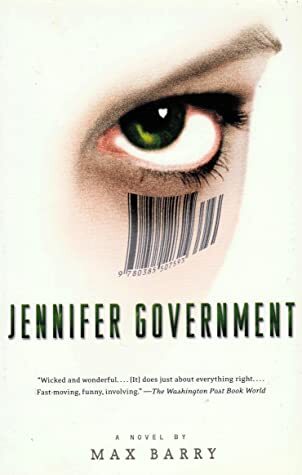 The premise is that in the future, corporations have been utterly liberated from government control. They no longer pay taxes and all services are privatized from the police to social services. Indeed, everyone’s surname is replaced with whatever corporation they’re presently working for. John Nike, Buy Mitsui, and so on. Jennifer Government is working for the last remnants of the US government that has a shadow of its former authority.
The premise is that in the future, corporations have been utterly liberated from government control. They no longer pay taxes and all services are privatized from the police to social services. Indeed, everyone’s surname is replaced with whatever corporation they’re presently working for. John Nike, Buy Mitsui, and so on. Jennifer Government is working for the last remnants of the US government that has a shadow of its former authority.
Already, it’s pretty obvious this is a deeply political book but its politics are pretty timeless and not related to recent events in the United States. Instead, its politics are the same as they were in 2003 when the book was first published. Specifically, its a critique of issues of privatization as well as unrestrained free-market capitalism. If that’s not the sort of thing you’d be interested in having dissected then Jennifer Government (as well as things like Bioshock) probably aren’t for you.
Things are already pretty bad for the world with the poverty in the United States and other USA-style economies in the world (by which we meant the parodic super-capitalist cyberpunk states) being out of control. Children are taught to believe that the poor should be left to die for their laziness and other charming ideas in school. However, a man named John Nike is bad even by the standards of the setting.
John Nike has a plan to drive the sales of Nike’s latest sneaker release up via a guerilla marketing campaign of having a bunch of children shot after they buy pairs. If there’s any further need to establish him as a monster and psychopath after this, he actually gets worse after doing so. However, John isn’t as competent as he thinks and his plan results in a ripple effect that has international implications.
Jennifer Government is an excellent protagonist as she struggles to try to take down John Nike and get enough funding to investigate the mass murder of children. She’s someone who used to work in the corporate world but has since tried to atone for her past mistakes. She’s also the mother of an adorable child that is one of the few innocents in the world.
John Nike and Jennifer Government aren’t the only protagonists, though. There’s the poor corporate schlub, Hack Nike, who wants to avoid hurting people but is intimately involved in a lot of horrible evils. Violet is a young computer programmer attached to Hack and willing to go to horrifying lengths to fix things. Claire likes Hack (for some reason) and is sisters with Violet. Buy is a stockbroker traumatized by giving a girl enough money to buy sneakers on the day of the aforementioned massacre. None of them except for Jennifer is particularly likable but provide a lot of insights into how this crazy world works.
In conclusion, this is a fantastic book but probably very much to your tastes in terms of politics. Its a ridiculous and dystopian world with a very anvilicious message but some anvils need to be dropped. It’s also still an enjoyable book. However, sometimes the protagonists can be infuriating as only Jennifer and John seem to have their heads on straight. Blame the McDonalds-run education system.
Purchase A Copy HereCheck Out Some of Our Other Reviews
Review – Blackbird Vol. 1 by Sam Humphries, Jen Bartel
Review – Perilous Confessions by Carrie Dalby
The post Review – Jennifer Government by Max Barry appeared first on BEFOREWEGOBLOG.
January 30, 2022
REVIEW – LORD FOUL’S BANE – STEPHEN R. DONALDSON
I did very little fantasy reading in my twenties and thirties, as it was a busy time with family / school / work. One series I did find the time to consume voraciously just before I hit that frenetic period in life was “The Chronicles of Thomas Covenant”. As the books came out, I tore through them. I got through the first and second chronicles, both trilogies, prior to University.
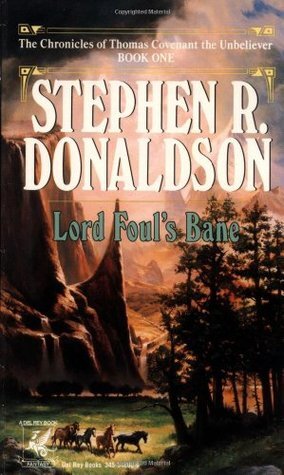 I finally finished the third and last trilogy in my forties, reading “The Last Dark” about three years back. I started at the beginning, with “Lord Foul’s Bane”, published back in 1977, which I first read in the mid-eighties. I was hooked. It is still one of my top 25 favorite fantasy books, and my first real introduction to the concept of an “anti-hero” in fantasy, being the protagonist, Thomas Covenant.
I finally finished the third and last trilogy in my forties, reading “The Last Dark” about three years back. I started at the beginning, with “Lord Foul’s Bane”, published back in 1977, which I first read in the mid-eighties. I was hooked. It is still one of my top 25 favorite fantasy books, and my first real introduction to the concept of an “anti-hero” in fantasy, being the protagonist, Thomas Covenant.
Prior to reading about Covenant’s story, I would say that there were few main characters I found other than scrupulously noble ones in the realm of fantasy fiction. Donaldson, the author, weaved Covenant as a sympathetic character, but tetchy, gruff, and someone who did despicable things. Nonetheless, Covenant was not evil, rather extremely flawed, suffering, haunted by his disease, and his past.
Unwillingly cast into a magical world from the modern-day, the tortured Covenant, a leper estranged from his wife, eventually rises to the occasion, and becomes the reluctant hero of “The Land”, with his simple white gold wedding band as a talisman of immense magical power. Complexities of the protagonist aside, this work still lines up as a classic, and thrilling battle between good versus evil.
There are other ambiguous characters throughout the series, and in “Lord Foul’s Bane”, but there is little room to mistake who are the goodies versus the baddies in this novel, and the entire series. The beginning of the conflict with the eponymous Lord Foul, “The Despiser”, the various races that populate “The Land”, the magical creatures, inventive landscape, fantastic secondary characters such, and a powerful, exceptionally-crafted story all combine to make the novel a tremendous work, and one of the best ever fantasy books.
If you have never read ”
Buy a Copy HereCheck Out Some of Our Other Reviews
Review – Gunmetal Gods by Zamil Akhtar
REVIEW – Where the Drowned Girls Go by Seanan McGuire
The post REVIEW – LORD FOUL’S BANE – STEPHEN R. DONALDSON appeared first on BEFOREWEGOBLOG.



